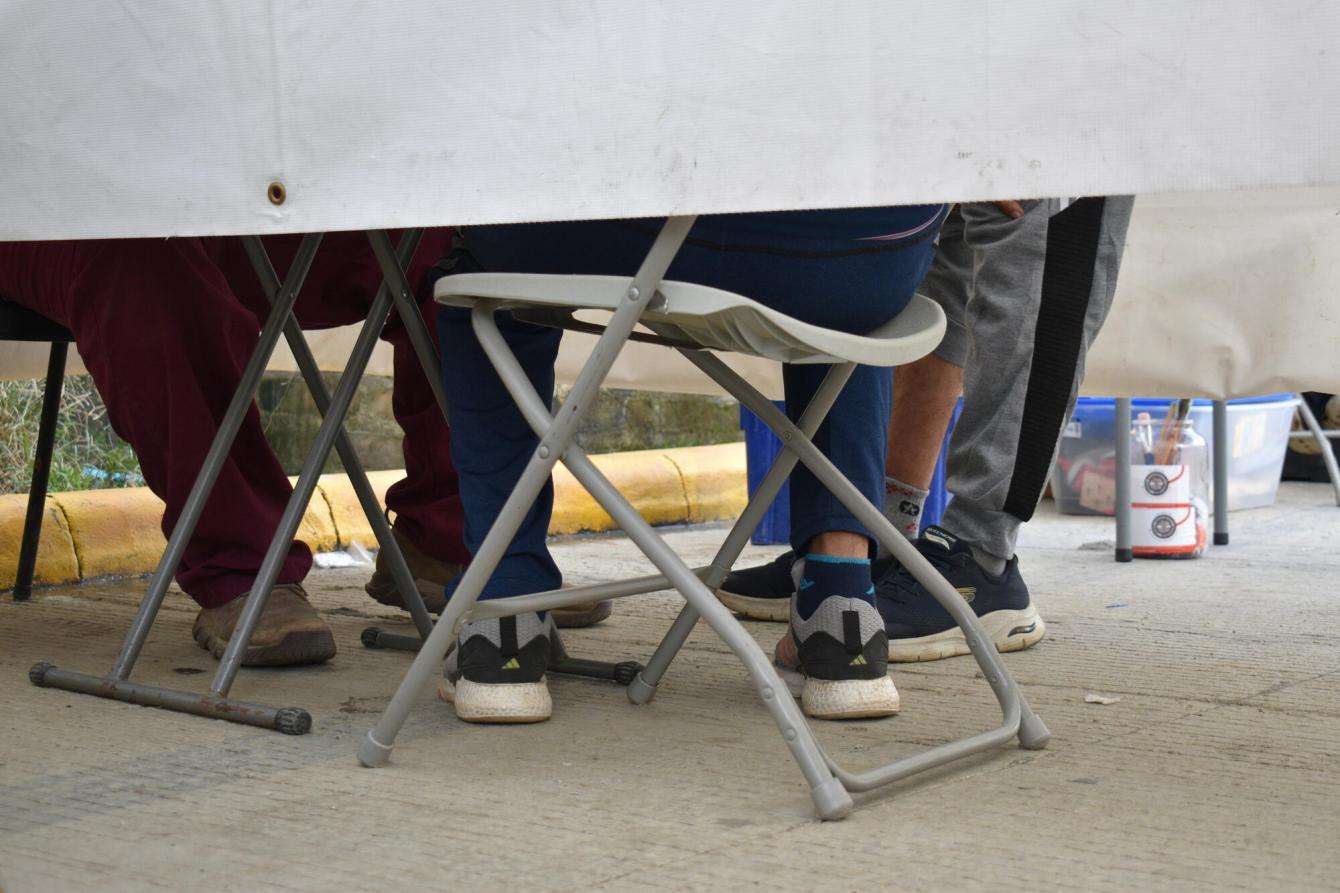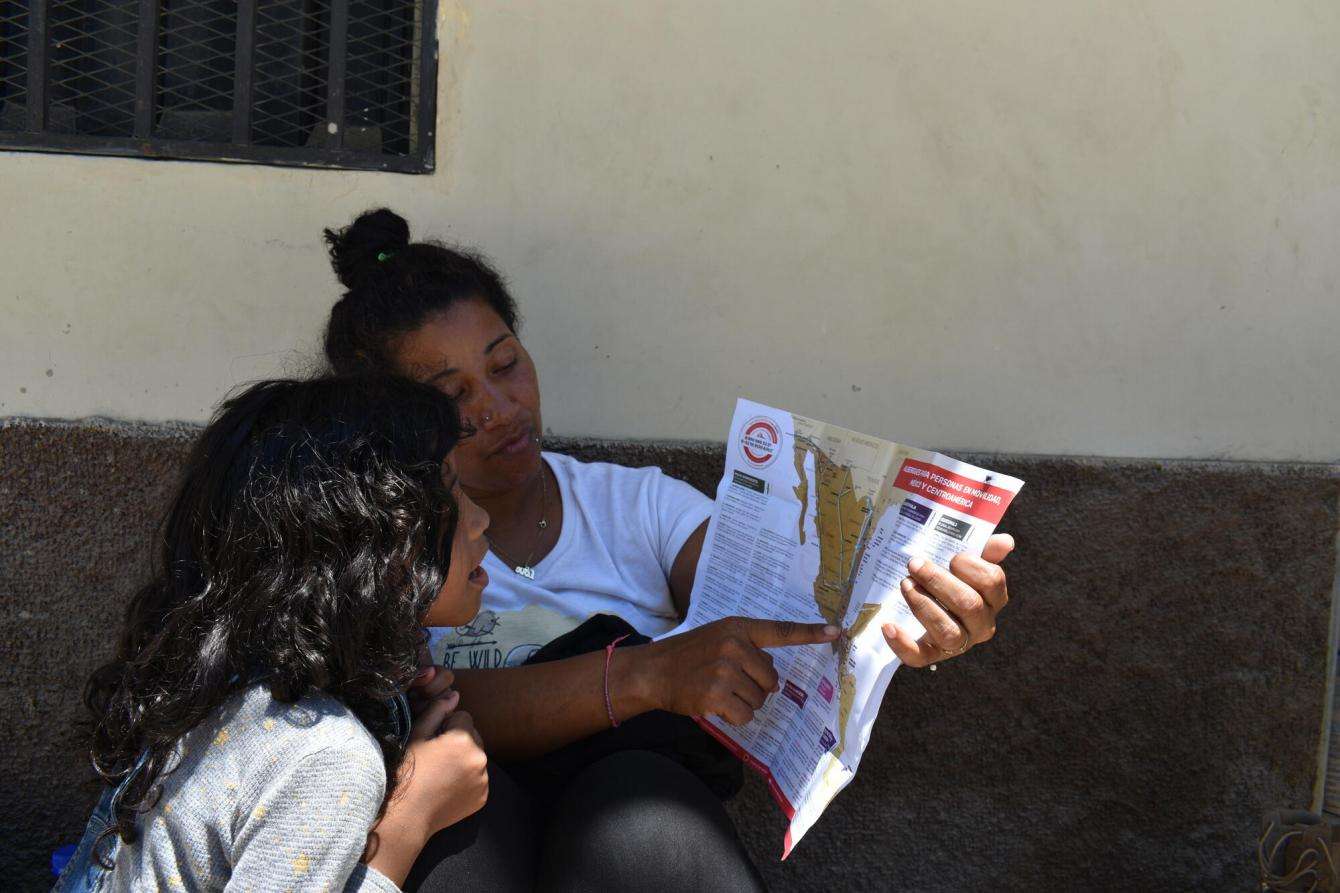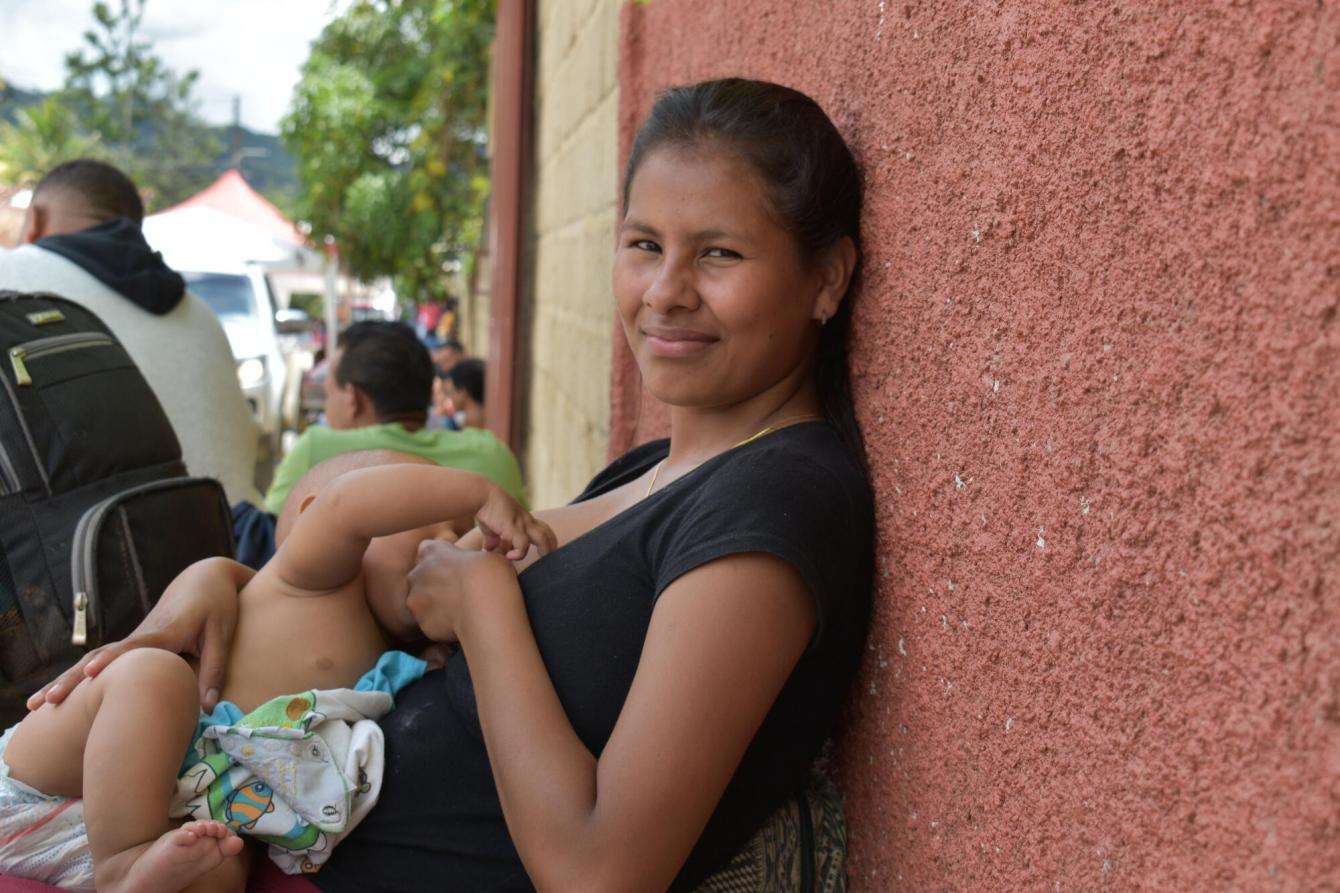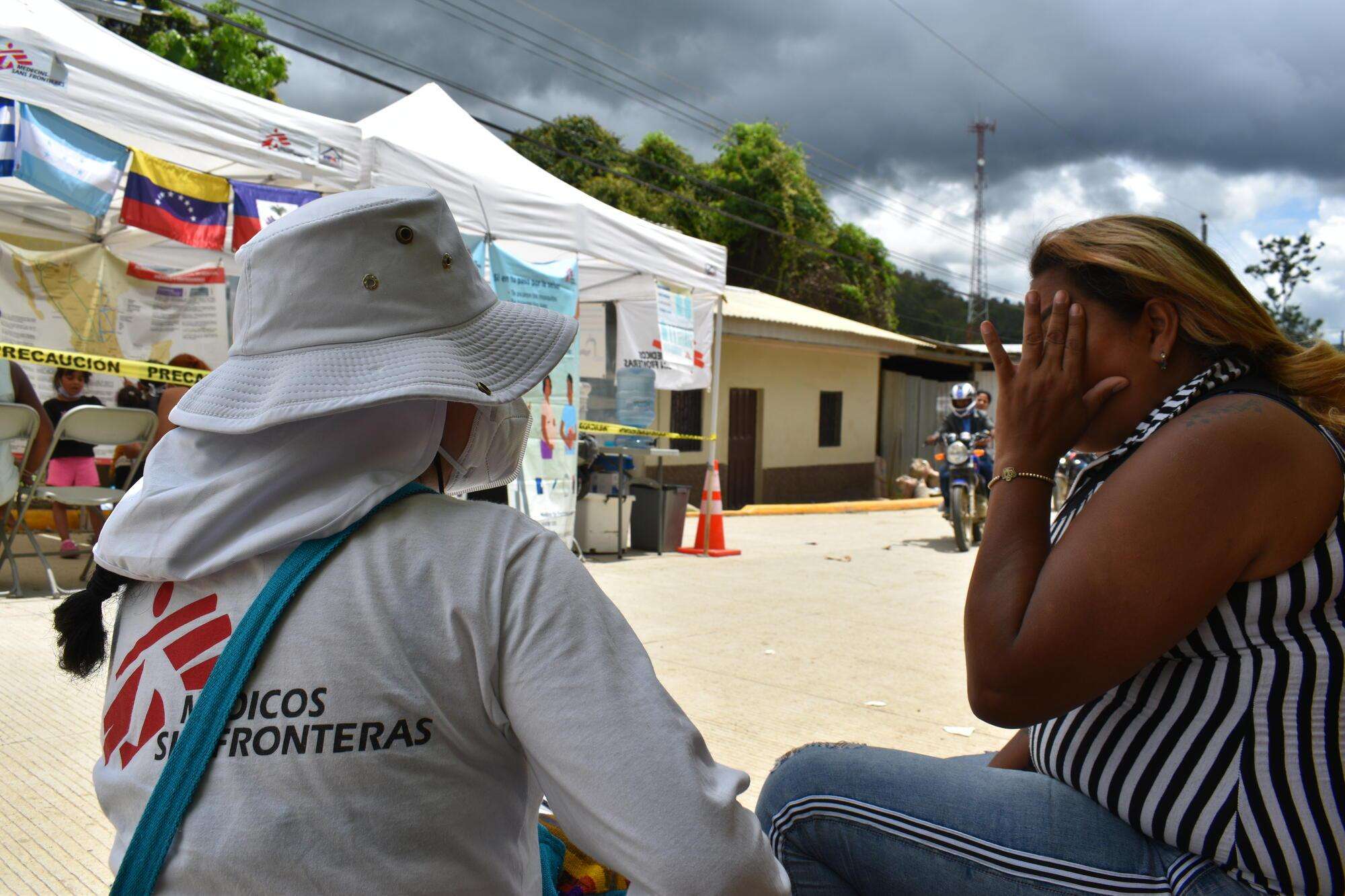The municipality of Trojes, a town in Honduras that borders Nicaragua, has in recent years become a key point on the migratory route north through the Americas. Every day, hundreds of people wait outside the Honduran National Migration Institute, exposed to the elements, to obtain a special transit permit that will allow them to cross the country legally.
Since 2021, more than 100,000 people from over 60 nationalities passed through Trojes on their way north after making the dangerous crossing through the jungles of the Darién Gap between Colombia and Panama. On this journey, people are exposed to multiple dangers and violence, including sexual violence. And those who make it to Honduras still face limited access to shelter, food, and health services.
To address the many medical needs of these vulnerable people, Doctors Without Borders/Médecins Sans Frontières (MSF) runs mobile clinics in Trojes to provide medical, psychosocial, and health promotion assistance. While people on the move wait to complete their migration paperwork, our teams provide essential health services and share information about self-care and where MSF clinics can be found along the migration route.
The following stories are from people from all over the world who arrived in Trojes after braving the long and dangerous journey.
Omar: Fleeing war in Afghanistan
In recent weeks, the National Migration Institute office in Trojes has received an increased number of people from Afghanistan. Many of them are fleeing the extreme conditions that have unfolded since the Islamic Emirate of Afghanistan (IEA, also known as the Taliban) took over last summer. This testimony captures the story of Omar* an Afghan who, to save his life, traveled to Brazil a year ago and is traveling north to reunite with his family.

“Afghanistan is a country where it is no longer safe to live. In my country I was a civil engineer, I worked and had my own company, but with the arrival of the Taliban I had to leave everything, I left a good life. I traveled to Brazil and my life is now safe. The Taliban kill and torture—they don't listen to women's rights or human rights. They stopped schools and universities; my daughters stopped studying. It is something that the media also censors, hiding this reality. I am going to the United States because I have family there, but it really is a difficult situation for us.”
Angélica: Crossing dangerous rivers with children
“We left Venezuela for the obvious reasons. I worked there as a nursing assistant, but the salary was no longer guaranteed. I have relatives in the United States who are nurses, and they told me that I can do better there.
When we got to the Darién, we really did not imagine that crossing the jungle was going to be so difficult. I am traveling with my husband and my two daughters, an eight-year-old and six-year-old. In one section we had to cross the river alone, we did not believe that the current would be so strong, and it began to drag me and one of my daughters. We saw the need to drop our backpacks to be able to hold onto my daughter—it was a terrible scare.
When we arrived in Nicaragua, we thought that we had already passed the nightmare of crossing rivers, however we had to cross another one again and my daughter was really affected, she does not want to know more about rivers. We managed to get through and now we hope to continue advancing. We received medication to relieve the flu that my daughter caught.”

The Brito family’s harrowing journey through the mountains
“That jungle was so bad that I would like to erase it from my life and memory. We had to stay on one of the most dangerous mountains, Las Banderas. When you leave the mountain, you no longer see civilization, only yourself and the groups that come after you. We went three and a half days without eating.
There came a time when I thought of telling [my family] that we were a lost cause. In this moment I started crying—I started asking God. I went away, and I went to cry, to vent alone. It was such a terrible experience.”

The frustrated dream of a journalist
“When I lived in Venezuela and wanted to start studying the situation, it wasn't that difficult. I'm talking about several years ago. At first, I worked as a cleaner at a university, which allowed me to study and work. That was where I met the father of my children, he was a motorist. I managed to finish my journalism degree and started working at the university in a related profession. With the change of government everything was worse and then I was left a widow.
When we started walking [north], some people started chasing us. Luckily a man stopped his car, and the people ran away—they must have thought it was a policeman. At first, they put us in the back of the car, but then they took out a dead 17-year-old boy, and his mother told us to take his place. That was ugly. In Honduras, we managed to receive medical attention, especially for my partner who has kidney problems, but it is a trip that I would not recommend to anyone.”

